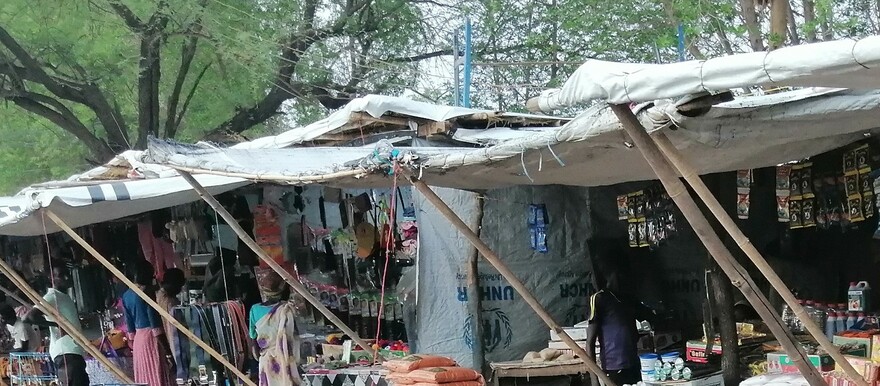Households in Malakal town have to dig deeper into their pockets to buy essential commodities as prices sustain an upward trend in the area.
Families in the restive town are spending as much as twice the amount of money they used a few months ago on commodities like flour, vegetables, cooking oil, tea, sugar and milk.
The cost of most essential goods has doubled in the past few months in most parts of South Sudan, but incomes have not risen. This week, prices around the capital Juba stood at about SSP 1005 for USD 1.
The result is that families are struggling to survive, with some forgoing commodities like sugar and meat whose high prices are making them a luxury.
The worst hit are low-income families that now have to squeeze their household budgets as they struggle to spread shrinking incomes to cater for all their basic needs.
“The ongoing fighting in Sudan has affected the market here in Malakal. If you go to the market with 5,000 SSP, you cannot buy anything good. Our salaries are not enough, my salary is 9,000 SSP only and it cannot last for two days,” said Rebecca Augustino, a civil servant, as he captured the plight of many South Sudanese in Malakal town.
Naynduny Goc, a resident of Malakal town, noted that she has no choice but to do away with some food items in her budget.
“Our living condition here in Malakal is very bad because prices of commodities have gone up. We need this issue to be solved, especially after the influx of people from Sudan. We want the government to find a solution,” she said.
For his part, Thon Yol, Chairperson of the Malakal Chamber of Commerce, attributed the rise in consumer prices to the unfavourable rate of the US dollar in the market and the lack of flow of goods coming from Sudan due to the war as well as challenges of river transport between Juba and Malakal.
“There is always delays in the movement of goods between Juba and Malakal when using river transport and this leads to an increase in prices of essential goods in the market,” he explained.
Analysts noted earlier that misinformation about the soaring dollar exchange rate in the black market is also one of the drivers of commodity price hikes and urged the central bank and finance ministry to rein in speculators who want to benefit from the turmoil in the market.
“A major driver of this dollar rate and the fact that it is depreciating against the South Sudanese Pound is first and foremost speculation. So, we have a situation where people in the black market can use money and speculate,” said Morris Madut, an economics lecturer in Juba.




